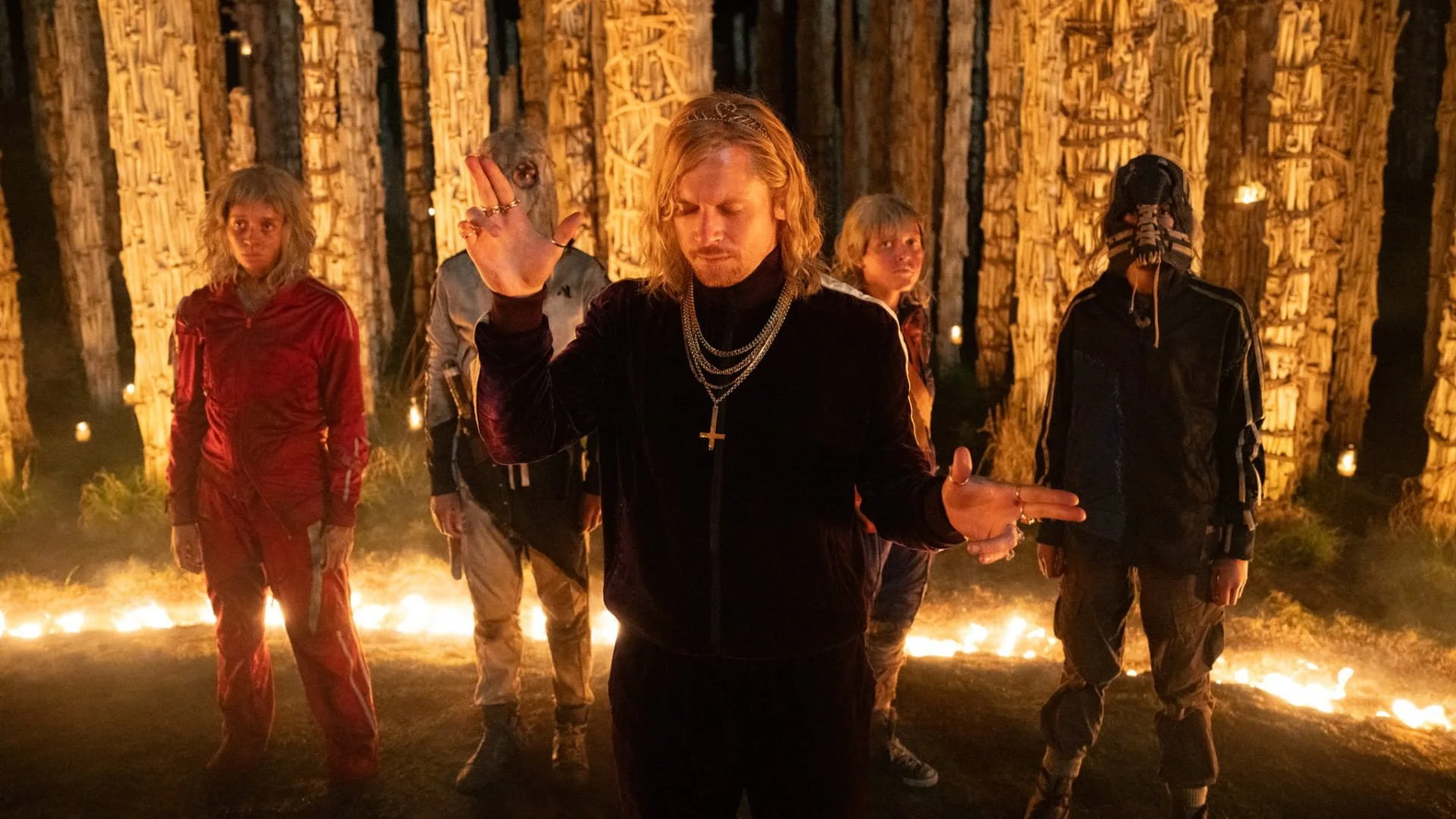Review: Windfall (2022)
Jesse Plemons has an inscrutable face. He has small, dark brown eyes that can appear almost sunken in his face when he squints. If he’s smiling, you can catch a glimmer of warmth in his eyes, but if he doesn’t smile, he can seem cold, even terrifying, which is accentuated by the fact that his eyes look to be nothing more than small black dots, their focus unclear. He can successfully leverage this aspect of his face for comedy, as he does in his scene-stealing performance in Game Night, or for terror, as he does as Todd in Breaking Bad. What he cannot do is leverage it for charisma. Plemons is a likeable actor (as shown in his performance as Landry Jones in Friday Night Lights), but he’s a man who keeps you at a distance, which doesn’t lend itself naturally to charisma or confidence. Which is why Plemons is sadly miscast in Charlie McDowell’s Windfall, a minimalist three-hander starring Plemons as a smarmy billionaire tech CEO who visits his vacation home with his wife (Lily Collins) only to be held hostage by a robber (Jason Segel).
Windfall is a film that is all about the three performances, about withholding information and having capable performers parcel out the complexities and motivations of their characters through intimate conversations that take place as they’re forced to wait until the CEO can secure enough cash to pay off the robber. There is precious little exposition about these characters; we never even learn their names. What we know is what the film shows us and what we think the characters tell us: that the CEO is rich, that the robber has a grudge against him, and that his wife may not be as sympathetic to him as she lets on.
The dynamic between the characters, between the shaggy dog robber, the slick CEO, and the empathetic wife, relies entirely on our assumptions about these performers and how they can make us sympathetic to one side of the conflict or the other. But the film is only so successful in playing with our sympathies. While it holds some narrative surprises over the course of its 92 minutes, the character reveals are not surprising. These people basically are who we think they are the moment they appear on screen, which reveals a creative miscalculation off the top.
Director Charlie McDowell (son of Malcolm) and writers Justin Lader and Andrew Kevin Walker know this film is about how people withhold and reveal character in tense situations. It’s not so much a thriller—although it has elements of one—as it is an intimate character play with a dose of comedy. McDowell loves to make movies set at vacation homes where characters inadvertently discover harsh truths about themselves—his 2014 low-fi science-fiction film, The One I Love, with Elisabeth Moss and Mark Duplass, takes an intriguingly literal, if ultimately unsuccessful, approach to this type of material. So be clear that McDowell is trying to play with our sympathies as viewers and that his performers know what they’re doing.
It’s just too bad they’re not equipped to play to their strengths with this sort of material, which is more rote than the minimalist formal and expositional approach would let on. Collins is capable as the wife; she plays innocent and sympathetic to a believable degree and the way she manipulates her annoyance with her husband to lure in the robber (and the viewer) isn’t overplayed, even as the writing telegraphs the manipulations way too hard. Segel is even better, leveraging his shaggy and melancholy charm in order to make us side with his character, despite his rash of bad actions. Even in his funniest roles, Segel leverages his sadness better than most actors, so being able to push the sadness to anger and danger is a smart play on his part. He’s the one actor capable of surprising here, partially because the writing gets out of his way.
Which leads us back to Plemons, who doesn’t have the sort of charisma necessary to make us care about such a scumbag CEO. This isn’t to say that Plemons is bad. I doubt he’d be capable of giving a bad performance even if he tried. There are good moments with him here. There’s a shot where Segel’s robber puts on Three Amigos to kill time and Collins’ wife starts chuckling at a Chevy Chase sight gag. The focus pulls to Plemons looking over at Collins in pure disgust, the corner of his mouth snarling, his eyes black daggers on his young wife. It’s effective. But Plemons’ CEO is a one-note white collar bastard, half extrapolation of the Left Twitter-bile thrown at people like Elon Musk, half standard rich asshole that’s a dime a dozen in movies like this.
The casting of Plemons throws off the balance necessary to make a film as slight as Windfall land like it needs to. If we aren’t guessing up until the end of the film, doubting our decision to side with one character over the other, then there’s not enough dramatic and emotional tension; the minimalism betrays tedium. A three-hander needs balance for the characters, or else it topples over, pulled down by the weight of the writing and casting that forces us to side with one character and one character only. McDowell and the writers don’t give the film this balance. They ultimately fail the cast and the viewer. Which is too bad, because you’d think with an actor like Jesse Plemons in the lead, you couldn’t miss. Turns out good casting is as important as good acting, especially when the characters are the whole point of the show.
5 out of 10
Windfall (2022, USA)
Directed by Charlie McDowell; written by Justin Lader and Andrew Kevin Walker, based on a story by Charlie McDowell, Jason Segel, Justin Lader, and Andrew Kevin Walker; starring Lily Collins, Jesse Plemons, Jason Segel.



This mockumentary starring Matt Johnson and Jay McCarrol is a complex metafiction farce and a loving portrait of friendship and Toronto.